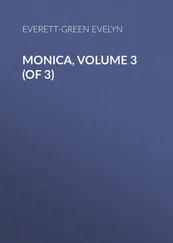Friedrich Max Müller - Chips from a German Workshop, Volume 1
Здесь есть возможность читать онлайн «Friedrich Max Müller - Chips from a German Workshop, Volume 1» — ознакомительный отрывок электронной книги совершенно бесплатно, а после прочтения отрывка купить полную версию. В некоторых случаях можно слушать аудио, скачать через торрент в формате fb2 и присутствует краткое содержание. Жанр: foreign_prose, foreign_antique, на английском языке. Описание произведения, (предисловие) а так же отзывы посетителей доступны на портале библиотеки ЛибКат.
- Название:Chips from a German Workshop, Volume 1
- Автор:
- Жанр:
- Год:неизвестен
- ISBN:нет данных
- Рейтинг книги:3 / 5. Голосов: 1
-
Избранное:Добавить в избранное
- Отзывы:
-
Ваша оценка:
- 60
- 1
- 2
- 3
- 4
- 5
Chips from a German Workshop, Volume 1: краткое содержание, описание и аннотация
Предлагаем к чтению аннотацию, описание, краткое содержание или предисловие (зависит от того, что написал сам автор книги «Chips from a German Workshop, Volume 1»). Если вы не нашли необходимую информацию о книге — напишите в комментариях, мы постараемся отыскать её.
Chips from a German Workshop, Volume 1 — читать онлайн ознакомительный отрывок
Ниже представлен текст книги, разбитый по страницам. Система сохранения места последней прочитанной страницы, позволяет с удобством читать онлайн бесплатно книгу «Chips from a German Workshop, Volume 1», без необходимости каждый раз заново искать на чём Вы остановились. Поставьте закладку, и сможете в любой момент перейти на страницу, на которой закончили чтение.
Интервал:
Закладка:
The Veda, by its language and its thoughts, supplies that distant background in the history of all the religions of the Aryan race, which was missed indeed by every careful observer, but which formerly could be supplied by guess-work only. How the Persians came to worship Ormuzd, how the Buddhists came to protest against temples and sacrifices, how Zeus and the Olympian gods came to be what they are in the mind of Homer, or how such beings as Jupiter and Mars came to be worshipped by the Italian peasant:—all these questions, which used to yield material for endless and baseless speculations, can now be answered by a simple reference to the hymns of the Veda. The religion of the Veda is not the source of all the other religions of the Aryan world, nor is Sanskrit the mother of all the Aryan languages. Sanskrit, as compared to Greek and Latin, is an elder sister, not a parent: Sanskrit is the earliest deposit of Aryan speech, as the Veda is the earliest deposit of Aryan faith. But the religion and incipient mythology of the Veda possess the same simplicity and transparency which distinguish the grammar of Sanskrit from Greek, Latin, or German grammar. We can watch in the Veda ideas and their names growing, which in Persia, Greece, and Rome we meet with only as full-grown or as fast decaying. We get one step nearer to that distant source of religious thought and language which has fed the different national streams of Persia, Greece, Rome, and Germany; and we begin to see clearly, what ought never to have been doubted, that there is no religion without God, or, as St. Augustine expressed, that 'there is no false religion which does not contain some elements of truth.'
I do not wish by what I have said to raise any exaggerated expectations as to the worth of these ancient hymns of the Veda, and the character of that religion which they indicate rather than fully describe. The historical importance of the Veda can hardly be exaggerated, but its intrinsic merit, and particularly the beauty or elevation of its sentiments, have by many been rated far too high. Large numbers of the Vedic hymns are childish in the extreme: tedious, low, common-place. The gods are constantly invoked to protect their worshippers, to grant them food, large flocks, large families, and a long life; for all which benefits they are to be rewarded by the praises and sacrifices offered day after day, or at certain seasons of the year. But hidden in this rubbish there are precious stones. Only in order to appreciate them justly, we must try to divest ourselves of the common notions about Polytheism, so repugnant not only to our feelings, but to our understanding. No doubt, if we must employ technical terms, the religion of the Veda is Polytheism, not Monotheism. Deities are invoked by different names, some clear and intelligible, such as Agni, fire; Sûrya, the sun; Ushas, dawn; Maruts, the storms; P r ithivî, the earth; Âp, the waters; Nadî, the rivers; others such as Varu n a, Mitra, Indra, which have become proper names, and disclose but dimly their original application to the great aspects of nature, the sky, the sun, the day. But whenever one of these individual gods is invoked, they are not conceived as limited by the powers of others, as superior or inferior in rank. Each god is to the mind of the supplicant as good as all gods. He is felt, at the time, as a real divinity,—as supreme and absolute,—without a suspicion of those limitations which, to our mind, a plurality of gods must entail on every single god. All the rest disappear for a moment from the vision of the poet, and he only who is to fulfill their desires stands in full light before the eyes of the worshippers. In one hymn, ascribed to Manu, the poet says: "Among you, O gods, there is none that is small, none that is young; you are all great indeed." And this is indeed the key-note of the ancient Aryan worship. Yet it would be easy to find in the numerous hymns of the Veda, passages in which almost every important deity is represented as supreme and absolute. Thus in one hymn, Agni (fire) is called "the ruler of the universe," "the lord of men," "the wise king, the father, the brother, the son, the friend of man;" nay, all the powers and names of the other gods are distinctly ascribed to Agni. But though Agni is thus highly exalted, nothing is said to disparage the divine character of the other gods. In another hymn another god, Indra, is said to be greater than all: "The gods," it is said, "do not reach thee, Indra, nor men; thou overcomest all creatures in strength." Another god, Soma, is called the king of the world, the king of heaven and earth, the conqueror of all. And what more could human language achieve, in trying to express the idea of a divine and supreme power, than what another poet says of another god, Varu n a: "Thou art lord of all, of heaven and earth; thou art the king of all, of those who are gods, and of those who are men!"
This surely is not what is commonly understood by Polytheism. Yet it would be equally wrong to call it Monotheism. If we must have a name for it, I should call it Kathenotheism. The consciousness that all the deities are but different names of one and the same godhead, breaks forth indeed here and there in the Veda. But it is far from being general. One poet, for instance, says (Rv. I. 164, 46): "They call him Indra, Mitra, Varu n a, Agni; then he is the beautiful-winged heavenly Garutmat: that which is One the wise call it in divers manners: they call it Agni, Yama, Mâtari s van." And again (Rv. X. 114, 5): "Wise poets make the beautiful-winged, though he is one, manifold by words."
I shall read you a few Vedic verses, in which the religious sentiment predominates, and in which we perceive a yearning after truth, and after the true God, untrammeled as yet by any names or any traditions 17 17 History of Ancient Sanskrit Literature , p. 569.
(Rv. X. 121):—
1. In the beginning there arose the golden Child—He was the one born lord of all that is. He stablished the earth, and this sky;—Who is the God to whom we shall offer our sacrifice?
2. He who gives life, He who gives strength; whose command all the bright gods revere; whose shadow is immortality, whose shadow is death;—Who is the God to whom we shall offer our sacrifice?
3. He who through His power is the one king of the breathing and awakening world—He who governs all, man and beast;—Who is the God to whom we shall offer our sacrifice?
4. He whose greatness these snowy mountains, whose greatness the sea proclaims, with the distant river—He whose these regions are, as it were His two arms;—Who is the God to whom we shall offer our sacrifice?
5. He through whom the sky is bright and the earth firm—He through whom the heaven was stablished,—nay, the highest heaven,—He who measured out the light in the air;—Who is the God to whom we shall offer our sacrifice?
6. He to whom heaven and earth, standing firm by His will, look up, trembling inwardly—He over whom the rising sun shines forth;—Who is the God to whom we shall offer our sacrifice?
7. Wherever the mighty water-clouds went, where they placed the seed and lit the fire, thence arose He who is the sole life of the bright gods;—Who is the God to whom we shall offer our sacrifice?
8. He who by His might looked even over the water-clouds, the clouds which gave strength and lit the sacrifice; He who alone is God above all gods;—
9. May He not destroy us—He the creator of the earth; or He, the righteous, who created the heaven; He also created the bright and mighty waters;—Who is the God to whom we shall offer our sacrifice? 18 18 A last verse is added, which entirely spoils the poetical beauty and the whole character of the hymn. Its later origin seems to have struck even native critics, for the author of the Pada text did not receive it. 'O Pra g âpati, no other than thou hast embraced all these created things; may what we desired when we called on thee, be granted to us, may we be lords of riches.'
Интервал:
Закладка:
Похожие книги на «Chips from a German Workshop, Volume 1»
Представляем Вашему вниманию похожие книги на «Chips from a German Workshop, Volume 1» списком для выбора. Мы отобрали схожую по названию и смыслу литературу в надежде предоставить читателям больше вариантов отыскать новые, интересные, ещё непрочитанные произведения.
Обсуждение, отзывы о книге «Chips from a German Workshop, Volume 1» и просто собственные мнения читателей. Оставьте ваши комментарии, напишите, что Вы думаете о произведении, его смысле или главных героях. Укажите что конкретно понравилось, а что нет, и почему Вы так считаете.












